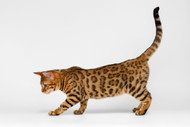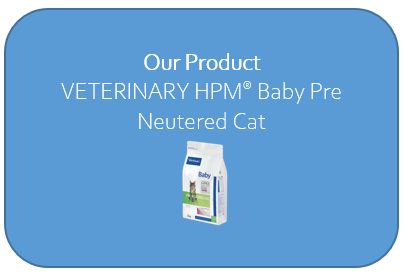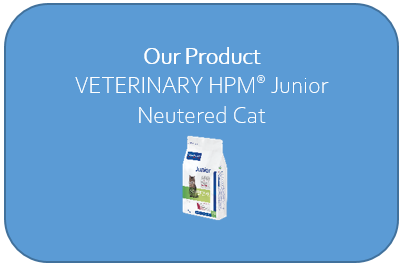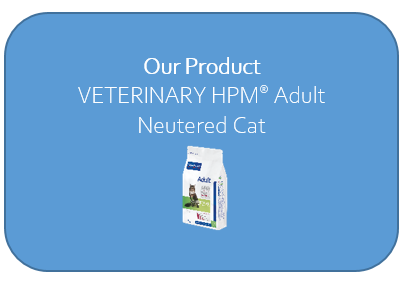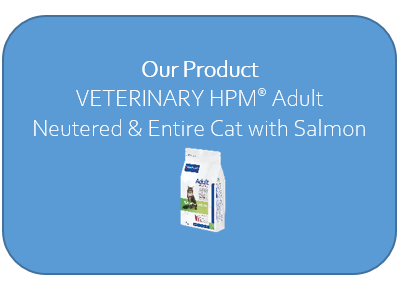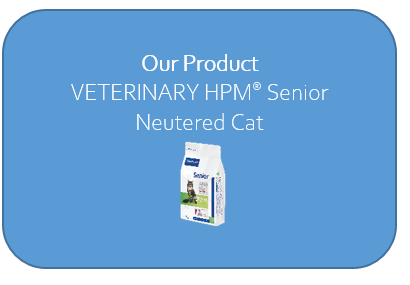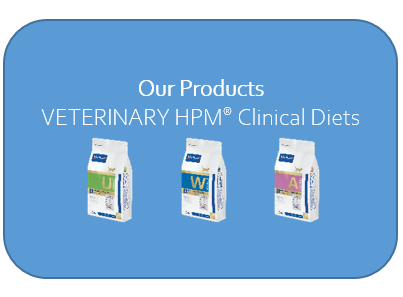What do cats eat?
Posted by Virbac -
What foods can cats eat?
Finding the right food for your cat is no easy task. There are many options on the market, with a variety of formulations, ingredients, textures, colours… So where do you even start? To help you, let’s cover the most common questions that vets are asked about feline nutrition.
But first, when it comes to feeding your cat, it is crucial to remember the ancestry of our beloved pets. Cats are incredible creatures. Shaped by tens of thousands of years of evolution, they possess the speed, agility and finely honed senses of an expert predator. Although your pet cat might seem a long way from their wild ancestors, their nutritional needs remain fundamentally unchanged.
Cats are obligate carnivores. They require the low-carb, high-protein diet of meat-eaters. Some key nutrients, such as essential amino acids, can only be provided by a high quality diet, so choosing carefully is key to their health!
Foods you can share
Many pet owners like to give a treat from their plate once in a while. After all, it can be hard to resist and cats know it! However, there are a few factors to consider before offering a treat.
First, humans are able to eat many things that aren’t suitable for cats, as they could cause digestive upset or even be toxic. See our paragraph on foods to avoid below. Some foods might be obviously unsuitable, but others might seem fine at first glance and yet are not ideal: for instance cats cannot digest a large amount of starch.
The second important thing to remember is that what might look like a very small treat to us could actually contain a large proportion of your cat’s daily requirements. This is especially important for the fat content, and treats can easily outweigh the benefits of a weight loss diet! With over 60% of vets in the UK saying that obesity is a major concern, and 44% of cats in the country reportedly overweight or obese, we simply cannot ignore the issue! Thankfully, the right diet with the right formulation can really help reach and maintain the correct bodyweight , but let’s ensure this isn’t compromised by unnecessary extras. A complete diet remains the most suitable option for your pet!
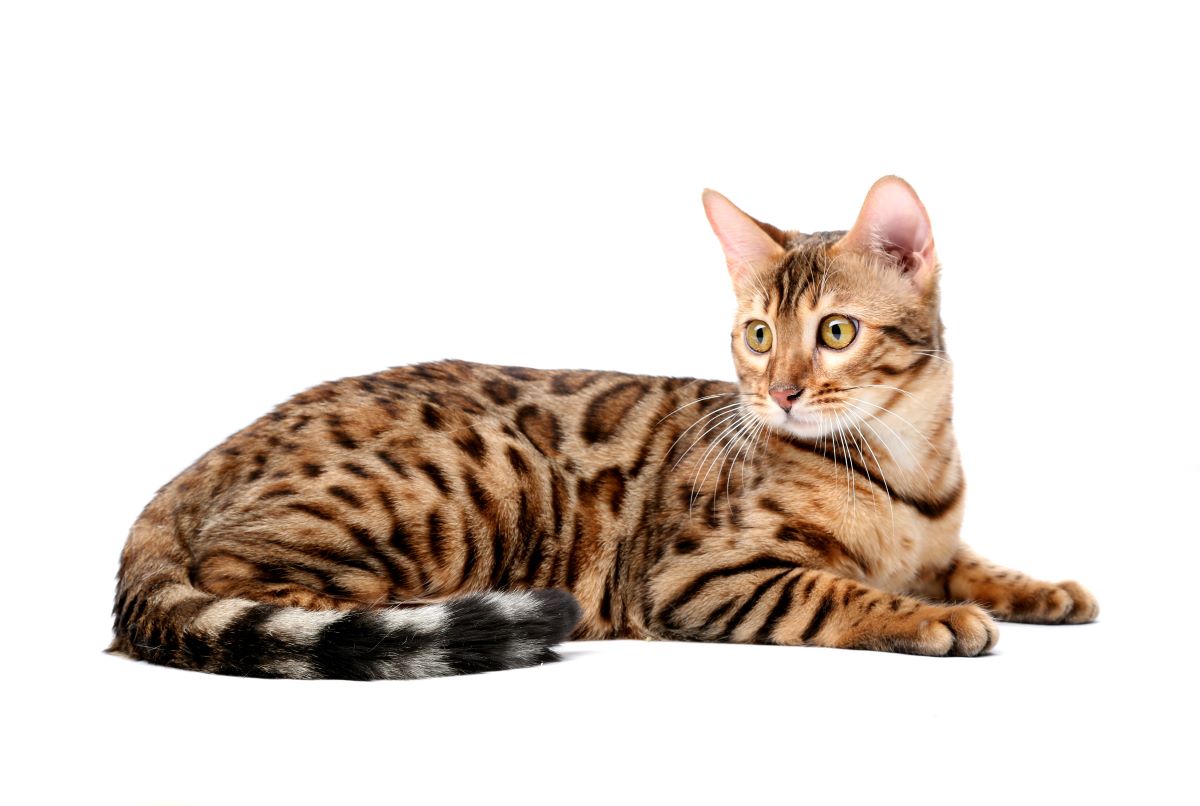
Can cats eat raw chicken?
A common query vets receive is about raw food, and chicken appears to be the most popular choice. Whilst the debate on raw diets is on-going, it is interesting to see that one of the main reasons for the appeal is being close to the pet’s needs. It is certainly true that respecting the carnivorous nature of the domesticated cat is crucial and nutrition must take this into account.
Raw food is often seen as a way to bring more protein to the meal, but this can be achieved with a complete wet or dry diet too. It’s not all about protein levels either, the quality of the protein is very important too, as cats rely on the amino acids in the diet. For example, the right amount of the right type of protein can help keep the skin nice and healthy , and this is not necessarily achieved with all raw diets.
Furthermore, a distinction must be made between a complete diet (regardless of the type) and a meat only diet, raw or cooked – levels of some vitamins and minerals for instance cannot be sustained with a meat only regime.
The last thing to consider is hygiene. Cats often graze throughout the day, only eating a fraction of the meal when it is first served. The bacterial content present in raw meat left at room temperature can quickly increase, posing a threat to your pet but also members of the family, especially young children! Such risks are completely avoided with a complete dry diet.
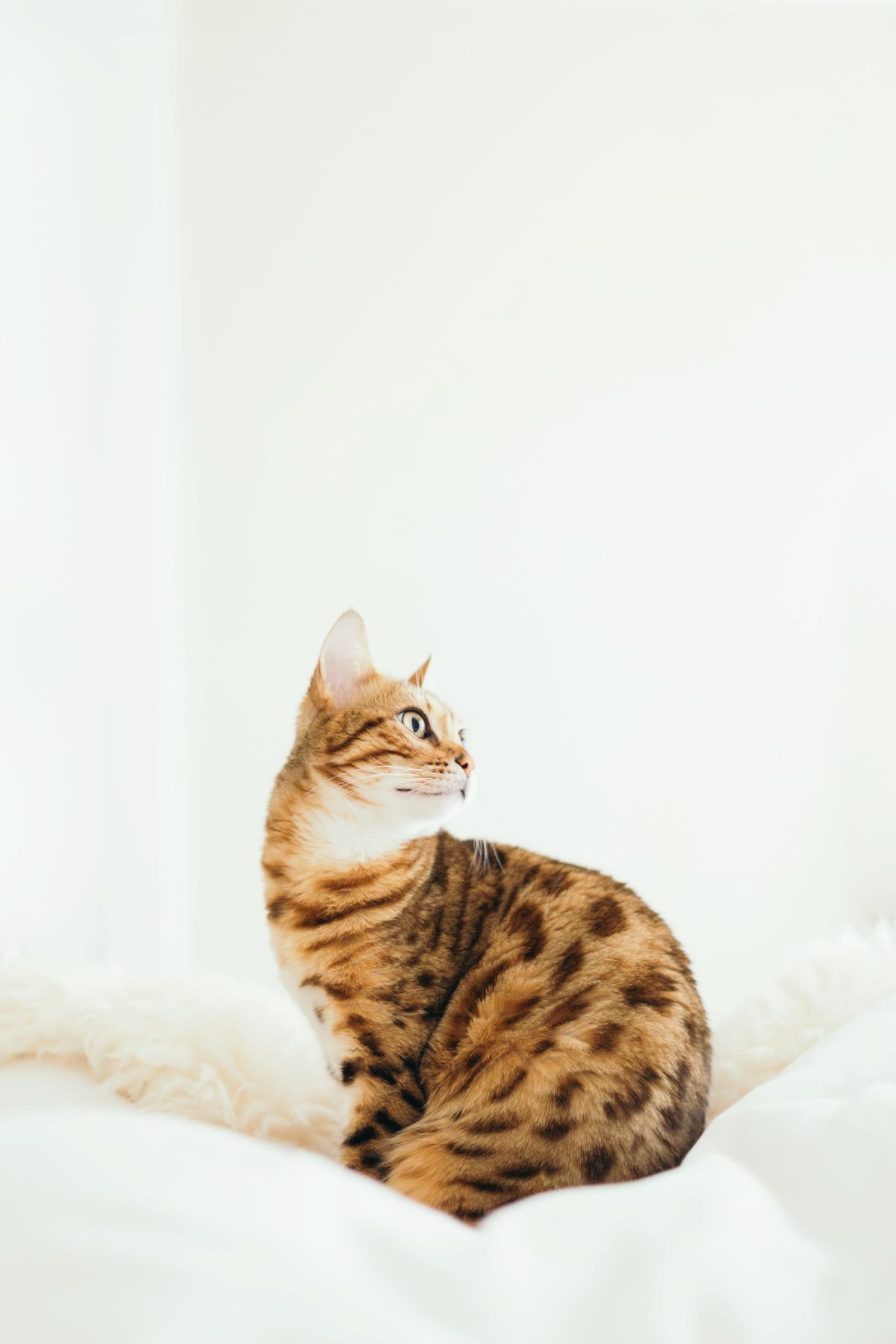
Can cats eat fish?
Fish is another popular ingredient for cat owners to use, and it’s no surprise. It tends to be very appealing to cats and contains some very useful nutrients, such as Omega-3 fatty acids. This is why fish is often found in pet food as a source of protein.
Using canned or cooked fish as a treat is certainly possible, but as always, beware of the amount so that you don’t compromise the diet and cause weight gain.
Raw fish however is not recommended and should be avoided.
Can cats eat eggs?
Eggs are often part of our diets, so it can be tempting to incorporate them into the cat’s diet too.
An important distinction must be made between raw and cooked eggs.
Raw eggs must not be given to cats. Alongside the risk of salmonella, raw egg white contain a protein called avidin which binds the Vitamin B7, leading to deficiency overtime.
Giving cooked eggs instead helps to avoid the issue but again would only represent a small part of the needed nutrients and cannot compare to a complete diet, so the benefits are actually really limited.
Can cats eat cheese?
Cheese might appeal to some cats. Whilst occasionally giving a very small piece as a treat (or to hide a pill!) might be well tolerated in some pets, always bear in mind that many cats are lactose intolerant, so it is preferable to avoid cheese in order to limit the risk of digestive issues. Furthermore, the fat content is not negligible, which could compromise any weight management programme.
Can cats eat whole grain?
Unexpectedly, some cats like corn and derivatives. However, the main issue with whole grain is digestibility and cats cannot tolerate large amounts. Grains must also be cooked. Overall, this should not be seen as a feed of choice.
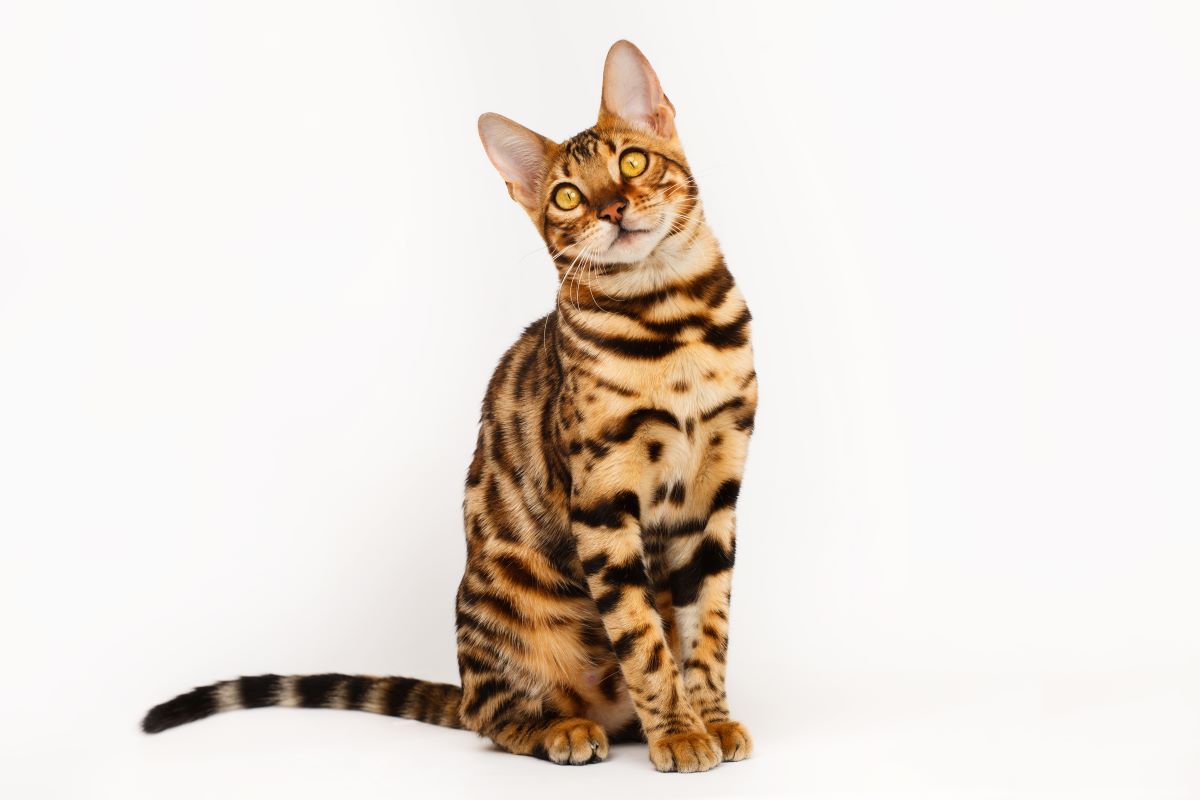
Can cats eat vegetables?
Whilst a more unlikely treat for a cat, some actually like the taste of some vegetables, such as courgette or cucumber for instance, which are easily digestible.
Always be more cautious with food from your plate – many things commonly used when cooking vegetables are toxic to cats, onions being one obvious example.
Vegetables are also useful in pet food as they are a source of fibre (good for digestive tract health) as well as helping with texture. However, vegetables should remain a secondary ingredient rather than the primary source of protein, as they do not contain the necessary amino acids that are found in animal protein.
“Foods to avoid feeding your cat”
Many foods used for daily cooking are not suitable for cats. Unfortunately, this includes things that might appeal to cats, so always be careful when they are around your plate of food. The list below is not exhaustive, and if any doubts, always call your vet immediately to clarify.
- Onions
- Raisins
- Grapes
- Tomatoes
- Avocado
- Chocolate
- Coffee
- Mushrooms
- Fruit stones and seeds
Always be mindful of ‘physical’ obstacles too, such as fish bones or cooked bones, as they can cause severe damage and be life-threatening.
What if my cat is not eating much but acting normal?
When it comes to cats and their appetite, it is important to differentiate anorexia (not eating at all) from not eating as much as expected.
For the former, if your cat suddenly stops eating, immediately go to your vet. Due to their metabolism, cats not eating, whatever the reason, are at high risk of complications that can be life threatening, so do not wait.
If they are not eating as much as expected but acting normal, there are several common causes to consider.
“Stress-related issues”
Cats are highly susceptible to stress, and any change in their environment or routine can affect their appetite.
Common causes include
- House move
- Work being done in the house
- New person or pet in the household
- New pet in the neighbourhood
Whilst those might be unavoidable at some point in their life, there are measures that can be taken to mitigate the effect, both with environmental measures and with the help nutraceuticals or medications. One example of commonly used nutraceutical is L-theanine, found in products such as Anxitane, which has a calming effect and is available in tablet formulation for cats. L-theanine is also added to VETERINARY HPM ® Urology U3 to help with stress related issues that are known to predispose cats to urinary issues.
“Mouth-related issues”
Any mouth-related issues may cause pain and affect the pet’s appetite. Remember that cats are very good at hiding pain, so it might not be obvious – your vet will be able to examine your cat and provide advice on the best way forward.
- Dental disease is the most common cause of pain of buccal origin. There are different stages of dental disease, as the condition progresses if no treatment or preventive measures are put in place. Gingivitis is the first stage, which can deteriorate into periodontal disease. It is estimated that 70% of cats over the age of two suffer from dental disease, so it is certainly not uncommon. The first step is for your vet to assess which stage your pet is at, and decide on a plan. It is worth bearing in mind that prevention can be very effective if done consistently and help prevent serious issues in the long term. Whilst cats might be less receptive than dogs when it comes to dental prevention, there are some simple and effective way that are worth looking into. Tooth brushing with a specially formulated and palatable toothpaste is the most effective method. If this cannot be achieved, a water additive is a very simple yet effective way to help prevent dental disease.
- Some dental lesions are much more severe and difficult to detect and treat – resorptive lesions are commonly found in cats and require immediate treatment.
If your cat goes outside, a fight with another cat can never be ruled out, and claw or bite lesions could look minimal from the outside but lead to internal lesions. If unsure, always check with your vet.
“Systemic issues (mainly in older cats)”
Many issues can affect a cat’s appetite, and some causes might not be obvious at all. An examination by a vet is always the best first step. Depending on the findings, and especially if the pet is elderly, further tests might be recommended, such as a blood test. This will help to investigate conditions such as chronic kidney disease, a common issue in older cats.
Other conditions include liver disease and gastrointestinal issues, which might result in similar symptoms.
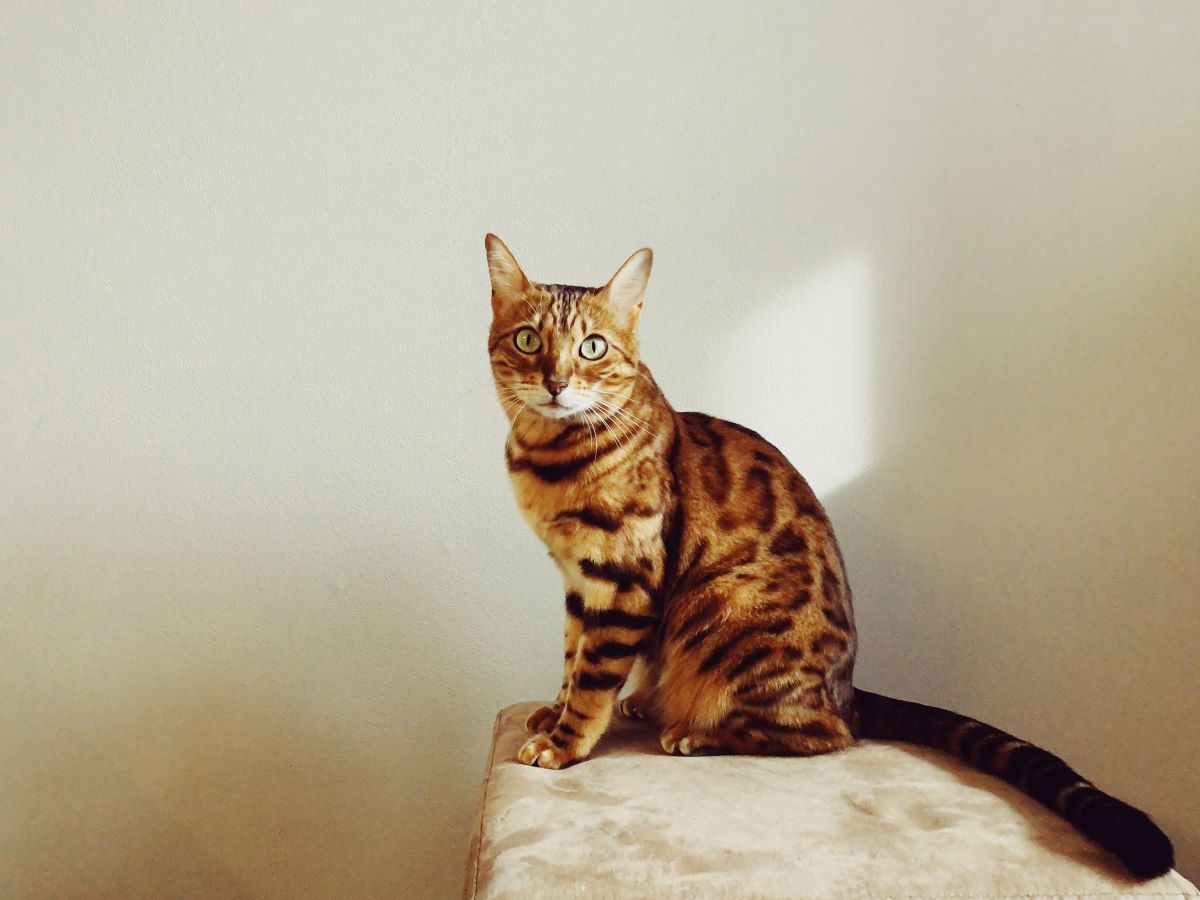
What about VETERINARY HPM®?
Let’s now see how VETERINARY HPM® diets provide advanced nutrition for your cat, taking all aspects of feline health into account.
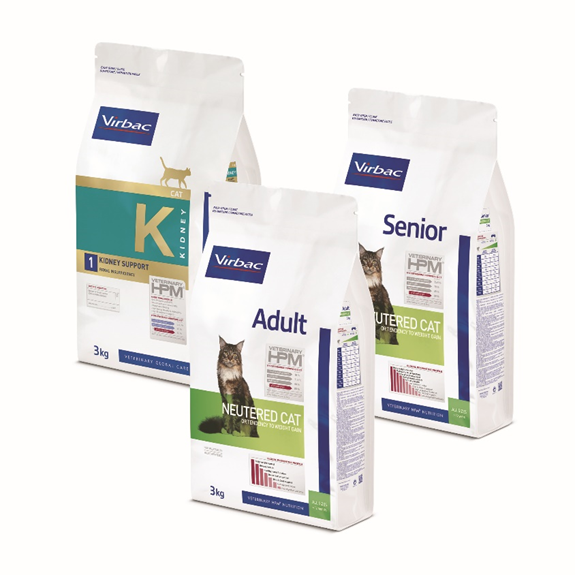
Finding the right food
Thanks to its formulation and nutritional profile (low carbohydrate-high protein balance) and specially selected functional supplements, VETERINARY HPM ® is more than just a cat food. It has a wide spectrum of health benefits to support the long-term health and well-being of your cat, the highly evolved carnivore in your own home
The Veterinary Global Care in the VETERINARY HPM ® Lifestage diets is a group of health benefits that the diets provide through the formulation or built-in supplements.
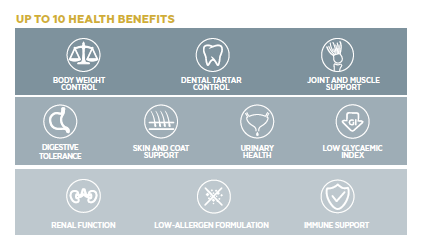
How much food?
Every pet is different and the amount of food given must reflect this. Feeding amounts must be adjusted based on the lifestage, breed and bodyweight status of the animal. With VETERINARY HPM ®, you will find detailed feeding recommendations on every bag, as well as each product page on this web store. Below is one example for VETERINARY HPM ® Adult Neutered Cat.
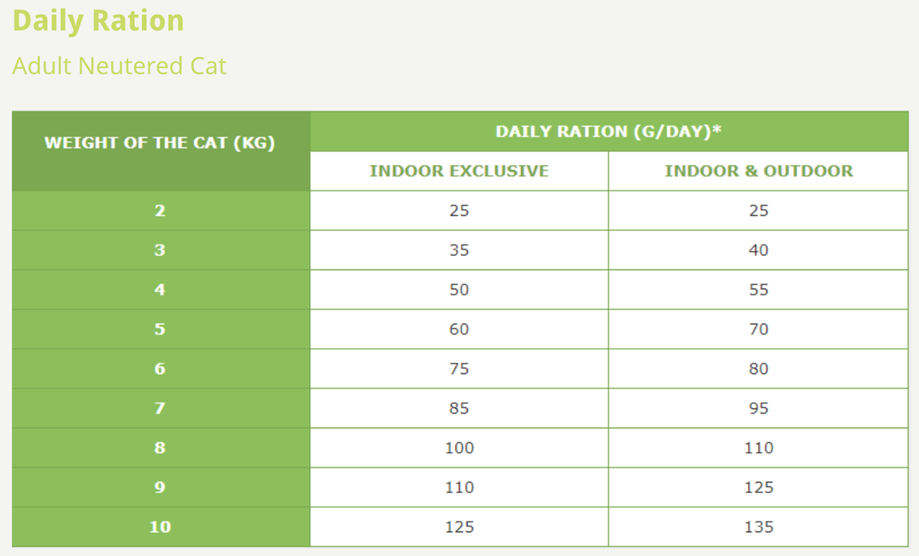
https://store.uk.virbac.com/cat-adult-neutered-diet
Our products
Whether kitten, adult or senior, neutered or entire, VETERINARY HPM ® satisfies the nutritional needs of every cat. Each recipe is specially adapted to give your cat an ideal diet, based on their changing needs at every stage of life.
Feeding your Kitten
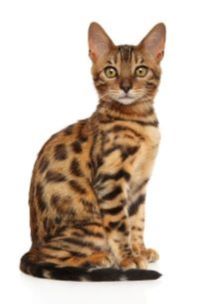
Kittens have strict requirements for healthy growth, especially in terms of energy, proteins and minerals. They have a delicate digestive system and an immature immune system. VETERINARY HPM ® responds to these specific needs.
Feeding your Junior Cat
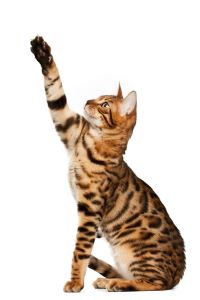
Once neutered, young cats are already predisposed to becoming overweight even if they are still growing. VETERINARY HPM® responds to your young neutered cat’s specific needs.
Feeding your neutered adult cat
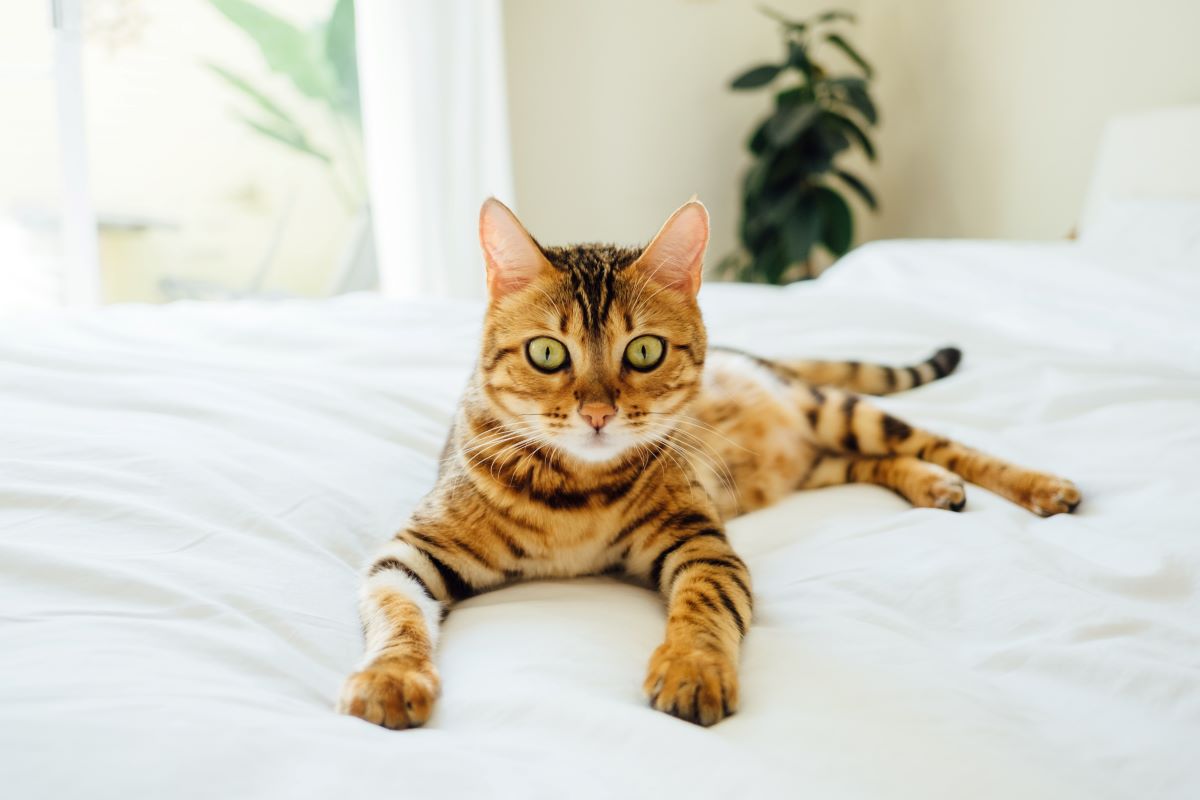
Adult Neutered Cat is specially formulated for neutered cats from 12 months of age, who have a predisposition to gain excess weight. VETERINARY HPM ® responds to your neutered cat’s specific needs.
Feeding your entire adult cat
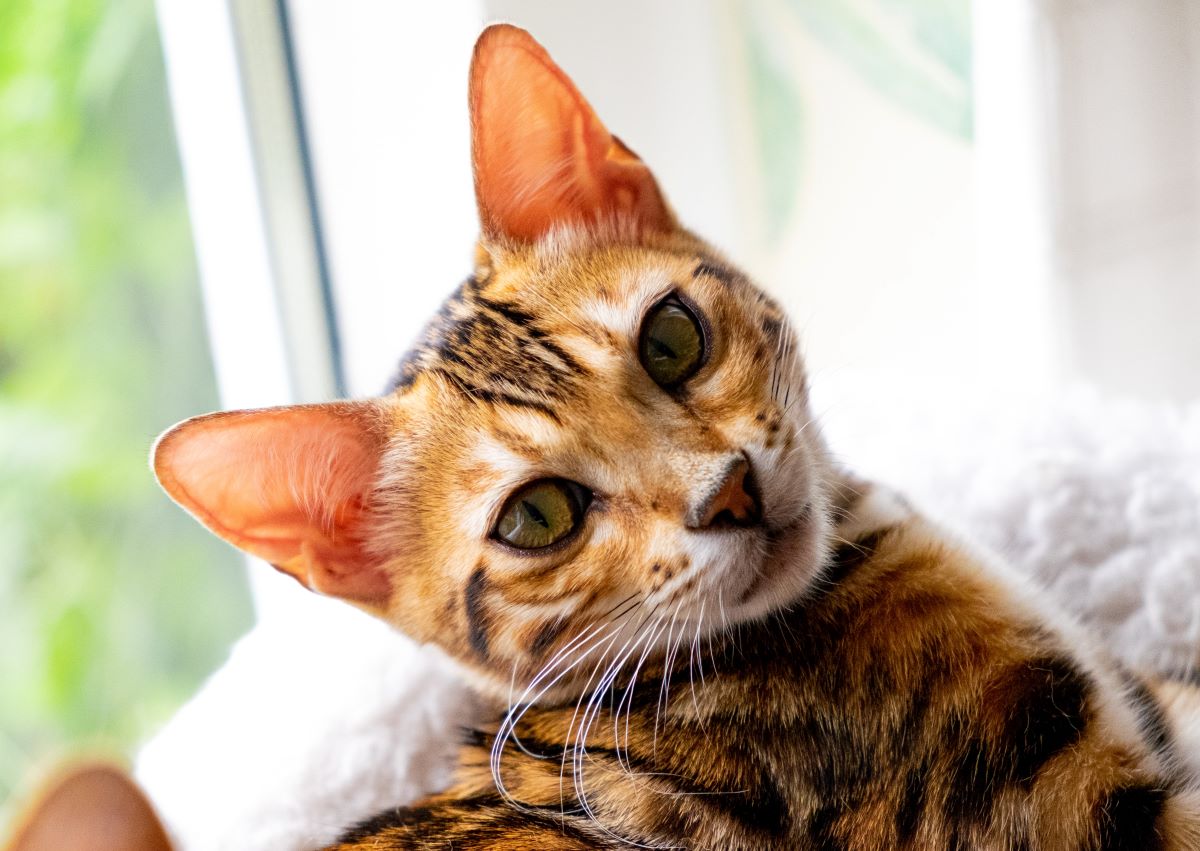
Adult Neutered Entire Cat with Salmon is specially formulated for entire and neutered cats from 12 months of age. VETERINARY HPM ® responds to your neutered cat’s specific needs.
Feeding your Senior Cat
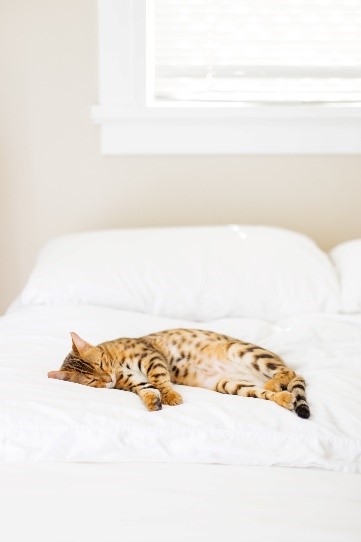
Older cats often exhibit a decreased appetite and are predisposed to weight loss and muscle wastage. VETERINARY HPM ® responds to your mature cat’s specific needs.
Cat on a Clinical Diet
Nutrition is known to have a major impact on the management of many clinical conditions, which is why your vet might recommend a clinical diet for your cat, such as the below:
●Cat Digestive Support
●Cat Weight loss & Control
●Cat Weight loss & Diabetes
●Cat Urology
●Cat Kidney Support
●Cat Dermatology Support
●Cat Hypoallergy
We recommend you speak to your vet before changing your cat’s diet.


